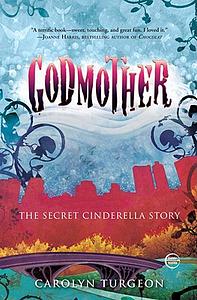Take a photo of a barcode or cover
I can't say much about this book without sounding like I'm gushing. It's honestly perfect. Original, well written, well executed, great 3-dimensional characters, sweet, sad, funny, clever, and surprising. It's the type of book that ruins whatever you read next, because next to this it'll seem frivolous and silly (Unless it's H.P Lovecraft, he's good for every mood)
More interesting than I thought it was going to be. Hmmm.
Disappointing. I won't spoil anything, but the ending was very disappointing. It felt as though the author was afraid to go through with what she had and then just flipped the script. Can't say I didn't really see it coming, but I was hoping I was wrong. I wasn't. I liked most of the book and if the ending had been different this would be a different review. TWO STARS for creativity and the lovely writing. MINUS THREE STARS for the crap ending.
Wow. Definitely not what I expected, but I probably wouldn't have read it if I had known how it ended.
3.5 stars, actually.
It's hard for me to read a story where I get frustrated with the main character this much. Lil is an senior lady who works at a book store for George in New York. She gets up every day, walks to work, cleans the store, sells books, and spends quite a lot of time bemoaning the loss of her former life as a fairy-- the exact fairy assigned to get Cinderella to the ball in all the fairy tales.
Only she messed up. She was banished to our human world and now toils and ages and regrets. And boy howdy does she regret. Lots of the book is taken up with her remembering the lake where she lived, her sister, flying around, and of course, her botched job at getting Cinderella to the ball. You see, Lil the fairy took on human shape and with it human desire, and things didn't quite go like the fairy tale said.
Only when a young hairdresser walks into the bookstore, and her employer George needs a date for a fundraiser ball, Lil sees her chance at redemption. She can redo the terrible night and make things right and maybe the fairies will let her come home.
The story is very slow, there's lots of wallowing in sensory details of lace, the smell of dust, the streets of New York and her memories. For instance, the phrase "hand on the back of his neck" etc. is used like six times in the last couple of chapters, and in her mind, Lil goes over and over her feelings of being in love and desire.
The problem was I wasn't quite sympathetic. She seemed so passive and so wrong at the same time. She went about her routine like an automaton and seemed to not really listen to George or Victoria but only treat them like characters from her memory. I got really kind of over Lil about halfway through the book but stuck around for the variation on the Cinderella story.
Anyway, it wasn't to my taste. Too much sensory detail, too much wallowing in angst, and then it turns out Lil might be an unreliable narrator, but so much happened in the past, that the "fun" of an unreliable narrator (at the end when its revealed, you can go back and rethink the scenes from the "more real" POV) was lost because all her memories didn't involve George or Victoria, but fairies from her past. It was unsatisfying for me.
Still, for folks who like angst and poetic, sensory writing about emotions, this might hit them differently than it did me.
It's hard for me to read a story where I get frustrated with the main character this much. Lil is an senior lady who works at a book store for George in New York. She gets up every day, walks to work, cleans the store, sells books, and spends quite a lot of time bemoaning the loss of her former life as a fairy-- the exact fairy assigned to get Cinderella to the ball in all the fairy tales.
Only she messed up. She was banished to our human world and now toils and ages and regrets. And boy howdy does she regret. Lots of the book is taken up with her remembering the lake where she lived, her sister, flying around, and of course, her botched job at getting Cinderella to the ball. You see, Lil the fairy took on human shape and with it human desire, and things didn't quite go like the fairy tale said.
Only when a young hairdresser walks into the bookstore, and her employer George needs a date for a fundraiser ball, Lil sees her chance at redemption. She can redo the terrible night and make things right and maybe the fairies will let her come home.
The story is very slow, there's lots of wallowing in sensory details of lace, the smell of dust, the streets of New York and her memories. For instance, the phrase "hand on the back of his neck" etc. is used like six times in the last couple of chapters, and in her mind, Lil goes over and over her feelings of being in love and desire.
The problem was I wasn't quite sympathetic. She seemed so passive and so wrong at the same time. She went about her routine like an automaton and seemed to not really listen to George or Victoria but only treat them like characters from her memory. I got really kind of over Lil about halfway through the book but stuck around for the variation on the Cinderella story.
Anyway, it wasn't to my taste. Too much sensory detail, too much wallowing in angst, and then it turns out Lil might be an unreliable narrator, but so much happened in the past, that the "fun" of an unreliable narrator (at the end when its revealed, you can go back and rethink the scenes from the "more real" POV) was lost because all her memories didn't involve George or Victoria, but fairies from her past. It was unsatisfying for me.
Still, for folks who like angst and poetic, sensory writing about emotions, this might hit them differently than it did me.
This was a pen-pal read for Fiction Fair. Godmother:Full Review Here
This is the story of Cinderella's godmother, post-fairy tale. I didn't read the other reviews here but I'm sure that others are more than happy to provide a synopsis, so I won't bother. This book brought me to tears. I felt such sympathy for the protagonist, beginning to end, and I hoped for a happy ending for her. I don't want to say much more than that because I don't want to give anything away at all. I highly recommend it, however!
I loved the way this book was written. It captivated me, and wouldn't let me put it down. Enchanting!
Cinderella might just be the most popular fairy tale. Not surprising really, most of us feel under apprenticed or taken for granted. Cinderella works her fingers to the bone, but finally is elevated and is able to sit down. Of course, she is elevated because she is beautiful and nice.
Turgeon’s retelling of Cinderella is supposedly about the godmother who upsets the tale by falling in love with the prince destined to be Cinderella’s husband.
Part of what Turgeon is paying with is the idea of memory and trauma. Her protagonist, Lil, the godmother of the title, feels that in order to regain her place among her sisters she must play matchmaker to her employer and new found friend. In some ways, this romance plot is the weakest part of the book. But it does serve the larger issue of the book which is connected to narrative and memory and, to a lesser degree the question of worth. Lil is chosen to help Cinderella, but is she the right one.
Lil in many ways is someone that society would discount, in many ways despite being the godmother is also the Cinderella figure, though she doesn’t necessary have a shoe to fill. Her white hair and age make her something other – someone to be humored, loved, or even coddled, but the question does arise -do those around Lil, even those who truly seem to are for her, know her or even have her interests at heart. This is particularly true when the twist comes because how it is revealed by one character comes across as cruel and dangerous. In fact, it renders the character who does it almost unlikable. Not so much that she does but how she does that.
The twist of the novel is one that while and seems to have divided the readership. You are either going to be impressed by it or disappointed. While twist does have some build it, the middle section of the book, which menders slightly, could have done a better job of building up to it. It is a powerful twist however.
Turgeon’s retelling of Cinderella is supposedly about the godmother who upsets the tale by falling in love with the prince destined to be Cinderella’s husband.
Part of what Turgeon is paying with is the idea of memory and trauma. Her protagonist, Lil, the godmother of the title, feels that in order to regain her place among her sisters she must play matchmaker to her employer and new found friend. In some ways, this romance plot is the weakest part of the book. But it does serve the larger issue of the book which is connected to narrative and memory and, to a lesser degree the question of worth. Lil is chosen to help Cinderella, but is she the right one.
Lil in many ways is someone that society would discount, in many ways despite being the godmother is also the Cinderella figure, though she doesn’t necessary have a shoe to fill. Her white hair and age make her something other – someone to be humored, loved, or even coddled, but the question does arise -do those around Lil, even those who truly seem to are for her, know her or even have her interests at heart. This is particularly true when the twist comes because how it is revealed by one character comes across as cruel and dangerous. In fact, it renders the character who does it almost unlikable. Not so much that she does but how she does that.
The twist of the novel is one that while and seems to have divided the readership. You are either going to be impressed by it or disappointed. While twist does have some build it, the middle section of the book, which menders slightly, could have done a better job of building up to it. It is a powerful twist however.


